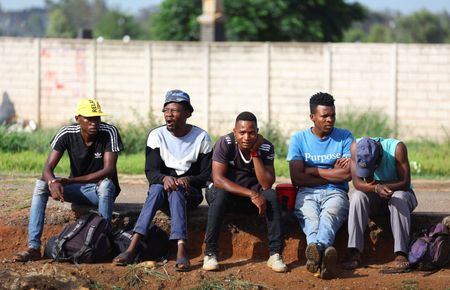RABAT (Reuters) – Morocco’s economy is expected to grow 6.3% in 2021, one of the highest rates in the Middle East and North Africa region, before slowing to around 3% next year, the International Monetary Fund said on Friday.
This growth is due to a “successful (COVID-19) vaccination campaign” as well as “continued fiscal and monetary stimulus, the rebound of exports, buoyant remittances, and the exceptional harvest after two years of drought,” the IMF’s Roberto Cardarelli told reporters after a meeting with Moroccan authorities.
Morocco’s economy contracted 6.3% last year under the combined impact of the pandemic and drought.
“Recent inflationary pressures have remained manageable and are expected to wane in the medium term, as cost pressures from global supply disruptions are reabsorbed,” Cardarelli said.
With the North African country’s current account deficit nearing its pre-pandemic level of 3.5% of GDP in the medium-term, the IMF official said Morocco was emerging from the pandemic with a much stronger international reserve position.
Remittances from Moroccans abroad hit a record 80 billion dirhams ($8.6 billion) in the first 10 months of 2021, offsetting weakness in tourism revenues.
The country’s foreign exchange reserves are enough to cover seven months of imports, according to official figures.
Cardarelli urged Morocco to cut its fiscal deficit and bring the debt-to-GDP ratio to pre-pandemic levels over the medium-term in order “to rebuild fiscal buffers and increase the resilience against future negative shocks.”
He said the IMF welcomed Morocco’s accommodative monetary policy, urged the country’s central bank to ensure that banks “continue provisioning against impaired loans, and recommended that the development of a distressed debt market be sped up.
(Reporting by Ahmed Eljechtimi; Editing by Paul Simao)









